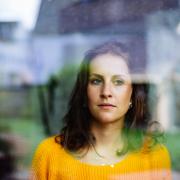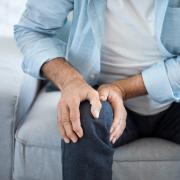Manchester's Dr Michelle Harvie is the woman behind a weight loss programme that the whole world is talking about
A diet that allows you to have your cake and eat it sounds like the dream of anyone wanting a quick diet fix.
Eat less for two days, then normally for five and you too can shed pounds - no wonder everyone is talking about the 5:2 diet.
Devotees like Hugh Fearnley Whittingstall and Mimi Spencer are raving about it. While hardly fatties to begin with they are publicising something that could be a life-saver.
Celebrities may grab the headlines but the real star is Dr Michelle Harvie who has pioneered the diet as part of her work in breast cancer prevention at Wythenshawe Hospital.
Chorlton-based Dr Harvie, an award-winning research dietician at Genesis Breast Cancer Prevention, and Professor of Medical Oncology Tony Howell, who is also Research Director of Genesis Breast Cancer Prevention, have been working on intermittent fasting diets for seven years and are authors of The 2 Day Diet.
In 2005, the centre began looking for women to trial the diet and it hit the headlines. Then last August journalist Michael Moseley did a piece for a BBC Horizon documentary about calorie restriction and longevity. As a result he has published his own version of the diet.
‘It has raised huge, huge interest in these two-day diets and I think people do perceive him as the man who invented it which is slightly strange,’ says 45-year-old Dr Harvie. ‘We’ve researched our’s - Michael Moseley’s has not been tested. And what is really important is this is not lining my pocket. This is all going back into research and into the Nightingale Centre here.’
While The 2 Day Diet’s authors have evidence that it works, its effectiveness goes beyond mere weight loss. Says Dr Harvie: ‘We know it (breast cancer) is on the increase. We know that 48,000 women are diagnosed every year and the rates have been going up year on year. We think that about 30-40% is linked to excess weight, lack of exercise and maybe too much alcohol - but the big players are what we weigh and how active we are as this affects our hormonal balance.’
She explains:‘If people are overweight their over-fed cells behave in a way that they are so busy growing they don’t look to themselves to do the housekeeping and repairing. That’s when cells can get damaged and that’s the first stage in cancer.’
In other words being heavier puts women at risk of breast cancer as well as Type 2 diabetes, heart disease and even dementia. So, the team here seem to have found an easier route to weight loss.
It was tested on 200 women at risk of breast cancer and the hospital team and their partners were keen to try it too.Officially they found that six out of ten women who set out to follow the diet over three months were successful, losing at least 10 pounds compared to only four out of ten on a conventional diet. Now they have embarked on a study to see if the diet benefits women going through breast cancer treatment - particularly chemotherapy.
‘All our research on this particular diet is on women who haven’t got breast cancer but are at risk of it but certainly within the normal parameters of anybody following any diet regime there’s no reason why a woman who has been diagnosed with breast cancer wouldn’t benefit from this diet if they want to lose weight. To lose weight you’ve got to look at your diet and we think we’ve come up with a do-able way to keep the calories down.’



























